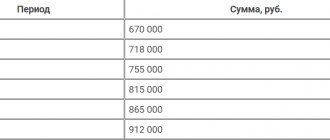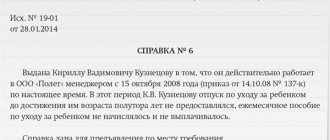Medical examination (screening) is a free medical examination of the population, which is aimed at improving the health of the nation. This technique originated in connection with the increase in the growth of oncology of lung tissue. In Russia, this event has been held since 2013 every 3 years by public and private clinics on the basis of the updated order of the Ministry of Health of the Russian Federation No. 514N dated January 19, 2017. “On the procedure for carrying out preventive measures for a certain group of the adult population.” This document was previously published in 2011 and amended in 2015. Preventive medical examination should be understood as a general examination of a citizen and additional examination, if necessary.
What years of birth are subject to medical examination (over 18 years of age)
In order to calculate the frequency of undergoing a medical examination, you need to divide your age, starting from 18 years old, by 3 and, if there is no remainder, then you can undergo an examination this year . To simplify the situation, let’s look at the tables of age and year of birth for each year (starting from 2018).
Clinical examination 2021
| Year of birth | Age |
| 2003 | 18 |
| 2000 | 21 |
| 1997 | 24 |
| 1994 | 27 |
| 1991 | 30 |
| 1988 | 33 |
| 1985 | 36 |
| 1982 | 39 |
| Since 1980, full medical examination has been available annually |
Clinical examination 2021
| Year of birth | Age |
| 2002 | 18 |
| 1999 | 21 |
| 1996 | 24 |
| 1993 | 27 |
| 1990 | 30 |
| 1987 | 33 |
| 1984 | 36 |
| 1981 | 39 |
| Since 1980, full medical examination has been available annually |
It is important to know that the order for medical examination for 2021 includes updating the rules for its completion.
Now, upon reaching 40 years of age, every citizen of the Russian Federation can and should take it every year. Also, people under 40 years of age now have the opportunity to regularly monitor their health. Only in their case will the procedure be a simplified preventive examination. Unlike a full clinical examination, it includes only the following activities:
- measurement of anthropometric characteristics (weight, height and waist circumference) to calculate body mass index;
- determination of glucose and total cholesterol in the blood;
- electrocardiographic examination;
- measurement of intraocular pressure;
- examination of women by a gynecologist;
- fluorographic examination 1 time/2 years;
- blood pressure measurement.
Clinical examination 2021
| Year of birth | Age | Year of birth | Age | Year of birth | Age |
| 2001 | 18 | 1971 | 48 | 1941 | 78 |
| 1998 | 21 | 1968 | 51 | 1938 | 81 |
| 1995 | 24 | 1965 | 54 | 1935 | 84 |
| 1992 | 27 | 1962 | 57 | 1932 | 87 |
| 1989 | 30 | 1959 | 60 | 1929 | 90 |
| 1986 | 33 | 1956 | 63 | 1926 | 93 |
| 1983 | 36 | 1953 | 66 | 1923 | 96 |
| 1980 | 39 | 1950 | 69 | 1920 | 99 |
| 1977 | 42 | 1947 | 72 | 1917 | 102 |
| 1974 | 45 | 1944 | 75 |
An important innovation this year was a change in the operating hours of clinics for convenient medical examinations for working citizens. According to the innovation, reception will be carried out in the evenings and on Saturdays.
Clinical examination 2021
| Year of birth | Age | Year of birth | Age | Year of birth | Age |
| 2000 | 18 | 1970 | 48 | 1940 | 78 |
| 1997 | 21 | 1967 | 51 | 1937 | 81 |
| 1994 | 24 | 1964 | 54 | 1934 | 84 |
| 1991 | 27 | 1961 | 57 | 1931 | 87 |
| 1988 | 30 | 1958 | 60 | 1928 | 90 |
| 1985 | 33 | 1955 | 63 | 1925 | 93 |
| 1982 | 36 | 1952 | 66 | 1922 | 96 |
| 1979 | 39 | 1949 | 69 | 1919 | 99 |
| 1976 | 42 | 1946 | 72 | 1916 | 102 |
| 1973 | 45 | 1943 | 75 |
Medical examination of children (up to 18 years old)
For children, the rules for conducting examinations are completely different; they are carried out within strictly established periods and without fail: 1, 3, 6-7, 10, 14, 15, 16, 17 years. The increased frequency in the last four years is explained by the peak manifestation of diseases during this age period.
Medical examination of children in 2021
| Year of birth | Age |
| 2020 | 1 |
| 2018 | 3 |
| 2015-2014 | 6-7 |
| 2011 | 10 |
| 2007 | 14 |
| 2006 | 15 |
| 2005 | 16 |
| 2004 | 17 |
Medical examination of children in 2021
| Year of birth | Age |
| 2019 | 1 |
| 2017 | 3 |
| 2014-2013 | 6-7 |
| 2010 | 10 |
| 2006 | 14 |
| 2005 | 15 |
| 2004 | 16 |
| 2003 | 17 |
An important change in 2021 was the introduction of mandatory obtaining the consent of the child’s legal representatives to conduct a medical examination no later than 5 days before its start.
Previously, there were no such time restrictions. Medical examination of children in 2021
| Year of birth | Age |
| 2018 | 1 |
| 2016 | 3 |
| 2012-2013 | 6-7 |
| 2009 | 10 |
| 2005 | 14 |
| 2004 | 15 |
| 2003 | 16 |
| 2002 | 17 |
Medical examination of children in 2021
| Year of birth | Age |
| 2017 | 1 |
| 2015 | 3 |
| 2011-2012 | 6-7 |
| 2008 | 10 |
| 2004 | 14 |
| 2003 | 15 |
| 2002 | 16 |
| 2001 | 17 |
Features of examinations for children from birth to 3 years
In addition to a full medical examination, children under 3 years of age should undergo regular general examinations with a local pediatrician. It is he who, if necessary, prescribes additional examinations from other specialists.
| Child's age | How often to get checked |
| up to 1 year | Monthly (of which the first 3 days after discharge from the hospital daily and on days 14 and 20) |
| up to 2 years | 1 time every 3 months |
| up to 3 years | Once every 6 months |
Clinical examination: changes in the Labor Code of the Russian Federation
Although such duties of a personnel officer are not declared by law, they can be described in the relevant LNA.
Note! Information can also be obtained through electronic exchange between organizations.
During a pandemic, any visit to medical institutions is an unnecessary risk. And it may not be possible to undergo medical examination everywhere. At the end of 2021, medical examinations and medical examinations were suspended in some regions of Russia, although at the national level the Ministry of Health returned them long ago.
To release an employee from work to undergo medical examination, it is enough to receive an application from him. There is no unified application form, so it can be drawn up in free form.
What is included in the medical examination?
The procedure for undergoing an examination by doctors is divided into 3 stages:
- An initial appointment with a therapist involves measuring basic indicators of weight, height, blood pressure, filling out a questionnaire to identify chronic diseases and mental disorders, taking tests and undergoing fluorography to check for inflammatory processes in the body, and examining key specialists: a gynecologist, urologist, cardiologist, ophthalmologist and dentist.
It should be understood that the exact list of studies directly depends on the gender and age of the patient:
| After 36 years | After 39 years | After 45 years | After 51 years | |
| For men and women | Every six months you need to take an express test to determine cholesterol, a general blood and urine test, and do fluorography of the lungs. | Measuring intraocular pressure to detect glaucoma, detailed and biochemical blood tests, ultrasound of the abdominal cavity to detect gastritis, tumors, stones, etc. | Stool examination for colon cancer. | Preventive examination by a neurologist. |
| For men | ECG for determining cardiovascular diseases. | Blood test for prostate cancer risk. | ||
| For women | Take a smear test to detect cervical cancer. | Mammography to exclude the risk of breast cancer. | Electrocardiogram to detect cardiovascular problems. |
- A second visit to the clinic to undergo specialist examinations and retake tests when diseases are detected based on the results obtained. This could be a visit to a gynecologist, ophthalmologist, surgeon, urologist and a scan of the brachycephalic arterial vessels to identify a possible stroke in a person.
- Determination of the risk group for people who have undergone medical examination, which are also divided into 4 categories:
- I gr. – Healthy (without chronic and infectious diseases and the absence of risk factors for their development).
II gr. – At increased risk (with signs of illness, obesity, dyslipidemia, and persons who smoke more than 2 packs per day, but do not require clinical treatment).
- IIIa gr. – Patients (those with chronic diseases and in need of specialized care).
- IIIb gr. – Patients (without chronic diseases, but in need of special high-tech care).
Upon completion of the examination at any stage, a health passport is issued with complete information about the examination and further recommendations.
What kind of doctors do children see during medical examination?
The procedure for medical examination depends on the age group of children. A team of specialists is formed on the basis of data on the physiology of different ages and diseases that manifest themselves at one time or another in a child’s life.
What does medical examination of children aged 1 and 2 years include?
| List of specialists | Age | |
| up to 1 year (inclusive) | 2 | |
| Pediatrician | + (required at 1 year and 3 months, then at 1.5 years) Other examinations and appointments with specialists are prescribed by the pediatrician as necessary. | + |
| Pediatric dentist | + | |
| Child/adolescent psychiatrist | + | |
| Additional Research | up to 1 year (inclusive) | 2 |
| General blood analysis | Appointed as necessary by the pediatrician or specialists to whom he referred the parents | + |
| General urine analysis | + | |
| Ultrasound of the abdominal organs | Appointed as necessary by the pediatrician or specialists to whom he referred the parents | |
| Echocardiography | ||
| ECG | ||
| Kidney ultrasound | ||
| Screening to identify risk groups for mental disorders | + | + |
What does medical examination of children aged 3 to 17 years include?
| List of specialists | Age | ||||||
| 3 | 6-7 | 10 | 14 | 15 | 16 | 17 | |
| Pediatrician | + | + | + | + | + | + | + |
| Neurologist | + | + | + | + | + | + | |
| Pediatric surgeon | + | + | + | + | + | ||
| Pediatric dentist | + | + | + | + | + | + | + |
| Ophthalmologist | + | + | + | ||||
| ENT | + | + | + | + | + | ||
| Obstetrician-gynecologist (for girls) | + | + | + | + | + | + | + |
| Urologist-andrologist (for boys) | + | + | + | + | + | + | + |
| Traumatologist-orthopedist | + | + | + | + | + | ||
| Child/adolescent psychiatrist | + | + | + | + | + | ||
| Pediatric endocrinologist | + | + | + | + | + | ||
| Functional studies | 3 | 6-7 | 10 | 14 | 15 | 16 | 17 |
| General blood analysis | + | + | + | + | + | + | + |
| General urine analysis | + | + | + | + | + | + | + |
| Ultrasound of the abdominal organs | + | + | |||||
| Echocardiography | + | ||||||
| ECG | + | + | + | ||||
| Kidney ultrasound | + | + |
The data from the examination of children is entered into the already existing history of the child’s development, which is stored in the clinic and transferred to the educational institution where he is studying. Parents are given a copy of the research and doctor's recommendations.
Shpakovskaya district hospital
Medical examination and preventive examinations of the population
Videos about clinical examination
Schedule of reception of citizens for medical examination
| Cabinet no. | Business hours | On Saturday |
| 219; 220 – “Health Center” (2nd floor) | 0800-1800 daily | 800- 1200 |
New rules for medical examination of citizens: more examinations and medical examination every year from the age of 40
On May 6, 2021, Order No. 124n of the Russian Ministry of Health came into force in Russia, which radically changed the rules for free medical examination of the adult population and the procedure for undergoing preventive medical examinations. Clinical examination is now carried out once every 3 years for those who have turned or will turn this year: 18, 21, 24, 27, 30, 33, 36, 39 years old. Citizens over 40 years of age now have the right to an annual medical examination. In addition, this category of the population will be screened to diagnose cancer at an early stage.
“In addition to medical examinations every three years, according to the new procedure, citizens over 18 years of age insured under compulsory medical insurance can undergo an annual preventive medical examination,” explained Deputy Director Natalya Rumyantseva. “In addition, according to the new rules, the prevention of cancer is being strengthened. During certain age periods, additional cancer screening will be carried out once every three years.”
The new procedure for undergoing medical examinations and annual preventive medical examinations will allow Russians not to waste time going through the same procedures several times. To do this, you will need a special information base in which the procedures completed during medical examinations and medical examinations will be recorded.
To undergo a free medical examination, you must have a compulsory medical insurance policy, be assigned to a clinic, and be of age. The medical insurance company that issued the compulsory medical insurance policy should remind you that it is the turn to see the doctors via SMS, mail or phone call.
In addition to an examination and conversation with a doctor, the first stage of medical examination includes: calculating body mass index, measuring blood pressure, checking blood sugar and cholesterol levels, and once every two years - fluorography. This is enough to assess the risk of developing diseases of the circulatory system, type 2 diabetes, and respiratory diseases. Based on the results of the first stage of clinical examination, the person’s health group is determined.
As part of the first stage of medical examination, as well as a preventive medical examination, the following is performed: screening for the detection of malignant neoplasms of the cervix, mammary glands, large intestine and rectum, prostate gland, as well as the esophagus, stomach and duodenum.
The second stage of clinical examination is carried out if prescribed by a general practitioner and includes consultations with medical specialists (neurologist, urologist, ophthalmologist and others), as well as a series of tests and studies that allow an in-depth assessment of the patient’s health status.
“Now medical examinations will become more frequent, and citizens over 40 years of age will be able to undergo medical examinations annually. Another important requirement of the document adopted by the Russian Ministry of Health is that people should be able to be examined in the evening, after hours, and on Saturday,” noted Sergei Troshin, director of the Territorial Compulsory Medical Insurance Fund of the Stavropol Territory. “These changes indicate that the Russian Government attaches great importance to disease prevention . Even changes have been made to the Labor Code and from 2021, all employees have the right to be released from work when undergoing a medical examination.”
Russians can get an additional day off to undergo a medical examination once every 3 years. If we are talking about a person of pre-retirement age or a pensioner, then the day off for medical examination is scheduled more often - once a year. In addition, such categories of workers have the right not to one day, but to two whole days. Days off for medical examination are provided with the employees retaining their place of work (position) and average earnings.
What is medical examination and why is it necessary?
Clinical examination is a set of measures, including a preventive medical examination by doctors of several specialties and the use of the necessary research methods.
The following groups of adults aged 18 years and older are subject to medical examination:
- working citizens;
- unemployed citizens;
- full-time students studying in educational institutions.
Medical examination is carried out once every 3 years at the age of 18 to 39 years inclusive;
annually at the age of 40 years and older, as well as in relation to certain categories of citizens, including:
a) disabled people of the Great Patriotic War and disabled combat veterans, as well as participants of the Great Patriotic War who became disabled due to a general illness, work injury or other reasons (except for persons whose disability occurred as a result of their unlawful actions);
b) persons awarded the badge “Resident of Leningrad” and recognized as disabled due to a general illness, work injury and other reasons (except for persons whose disability occurred as a result of their illegal actions);
c) former minor prisoners of concentration camps, ghettos, and other places of forced detention created by the Nazis and their allies during the Second World War, recognized as disabled due to a general illness, work injury and other reasons (with the exception of persons whose disability occurred as a result of their illegal actions);
d) working citizens who have not reached the age that gives them the right to receive an old-age pension, including early, within five years before reaching such age, and working citizens who are recipients of an old-age pension or a long-service pension.
Why do you need to undergo medical examination?
Regular medical examination is necessary, regardless of how you feel. Even if a person considers himself healthy, during medical examination he is often diagnosed with chronic non-infectious diseases, the treatment of which is most effective at an early stage.
Clinical examination is also aimed at early identification of the main risk factors for the development of chronic non-communicable diseases, i.e. Medical examination is aimed at reducing disability, premature mortality and increasing life expectancy.
Medical examination will allow you to maintain and improve your health, and, if necessary, carry out additional examination and treatment in a timely manner. Consultations with doctors and test results will help you find out the truth about your health and receive the necessary recommendations (about the basics of a healthy lifestyle or on identified risk factors).
Clinical examination is also aimed at identifying and correcting the main risk factors for the development of chronic non-communicable diseases, which include:
- high blood pressure;
- poor nutrition;
- excess body weight;
- low physical activity;
- increased blood glucose levels;
- bad habits;
- total cardiovascular risk.
It has been irrefutably proven that the prevalence of risk factors for the development of major non-communicable diseases among the population is directly related to the level of mortality from them. At the same time, the experience of a large number of countries around the world has shown that interventions over 10 years aimed at reducing the prevalence of these risk factors lead to a reduction in mortality by an average of 55%.
Who can undergo medical examination
In 2021, all persons born in the following years are subject to medical examination: 1917, 1920, 1923, 1926, 1929, 1932, 1935, 1938, 1941, 1944, 1947, 1950, 1953, 1956, 1959, 1962, 1965, 1968, 1971, 1974, 1977, 1980, 1983, 1986, 1989, 1992, 1995, 1998.
If in 2021 a citizen does not fall into the specified age categories, then during the year he can undergo a free preventive examination when visiting a clinic at his place of residence (attachment).
Detailed information about the procedure and conditions for medical examinations and preventive examinations can be obtained at the clinic’s reception desk, at your medical insurance organization, or by calling the Right to Health Trust: 8-800-700-000-3.
Features of the new medical examination procedure:
- the precinct principle of its organization;
- a differentiated set of examinations depending on age and gender (in order to increase the likelihood of early detection of the most common chronic non-communicable diseases for a given gender and age);
- 2 stages of clinical examination have been established (the first stage of medical examination (screening) is carried out to identify signs of chronic non-communicable diseases in citizens, risk factors for their development, as well as to determine medical indications for additional examinations and examinations by medical specialists to clarify the diagnosis at the second stage of medical examination; the second stage of medical examination is carried out according to the indications determined at the first stage for the purpose of additional examination and clarification of the diagnosis of the disease (condition);
- specifying the concept of “risk factors”, which include high blood pressure, high blood sugar and cholesterol levels, tobacco smoking, harmful alcohol consumption, poor nutrition, low physical activity, overweight and obesity;
- reducing the number of health groups from five to three and a new principle for their determination, which makes it possible to clearly define the procedure for each citizen.
Where and when can I get a medical examination?
Citizens undergo medical examination in a medical organization at the place of residence, work, study or the choice of a citizen, in which they receive primary health care (in a clinic, in a center (department) of general medical practice (family medicine), in a medical outpatient clinic, medical unit, etc. .).
Every person who would like to undergo a medical examination can contact their local physician, who should organize this.
Your local doctor (paramedic) or local nurse or receptionist will tell you in detail where, when and how you can undergo medical examination, and will agree with you on the approximate date (period) of medical examination.
What documents should the patient bring with him?
Every citizen going for a medical examination must have a passport and a compulsory medical insurance policy.
If you have undergone medical examinations in the current or previous year, take documents confirming this and show them to medical workers before starting the medical examination.
What diagnostic tests are carried out as part of medical examination?
The list of examinations by medical specialists (paramedic or midwife), studies and other medical measures carried out as part of the medical examination is determined depending on the age and gender of the patient.
The medical examination begins in the medical prevention room, where questionnaires, anthropometric studies, and non-contact eye tonometry (measurement of intraocular pressure at the age of 39 years and older) are carried out. Then the person receives a route sheet and begins to undergo tests: fluorography, electrocardiography, mammography, and so on.
The first stage of medical examination (screening) is carried out in order to identify signs of chronic non-communicable diseases in citizens, risk factors for their development, consumption of narcotic drugs and psychotropic substances without a doctor’s prescription, as well as to determine medical indications for additional examinations and examinations by medical specialists to clarify the diagnosis the second stage of medical examination. The first stage ends with an appointment (examination) with a general practitioner, which includes determining the health status group, the dispensary observation group, and conducting a brief preventive consultation.
Stage I of medical examination (screening) includes:
- survey (questionnaire);
- anthropometry (measurement of height, body weight, waist circumference, calculation of body mass index);
- blood pressure measurement;
- biochemical blood test (determination of cholesterol, glucose levels);
- stool occult blood test (ages 45 and older);
- determination of total cardiovascular risk (up to 65 years);
- electrocardiography (men from 36 years old, women from 45 years old);
- fluorography of the lungs;
- mammography (for women aged 39 years and older);
- examination by a paramedic (midwife), including taking a smear from the cervix for cytological examination (for women aged 30 to 60 years);
- determination of the level of prostate-specific antigen in blood serum (for men aged 45 and 51 years);
- Ultrasound of the abdominal organs (at the age of 39 years and older, once every 6 years);
- measurement of intraocular pressure (aged 39 years and older);
- preventive appointment (examination, consultation) with a neurologist (aged 51 years and older);
- appointment (examination) with a general practitioner.
Based on the results of the first stage, the therapist determines the health group and decides whether a more detailed examination is necessary (referral to the second stage of medical examination).
What preparation is needed to undergo medical examination?
To undergo the first stage of clinical examination, it is advisable to come to a medical organization (clinic) in the morning, on an empty stomach, before performing any physical activity, including morning physical exercise.
Preparation for donating blood for biochemical indicators (cholesterol and glucose)
Study of the level of total cholesterol in blood serum.
- During the week preceding the study, do not consume fatty or fried foods or alcohol. Strictly prohibited for consumption: products containing animal fats, cheese, sausage, egg yolk.
- In at least 2-3 days, eliminate the possibility of stress: overload at work, nervous breakdowns. It is also recommended to postpone visits to attractions and hardening procedures; going to the bathhouse and sauna is not advisable.
- Blood sampling is carried out on an empty stomach; the last meal session should take place 12 hours before the test.
- Before donating blood for a cholesterol test, you need to abstain from smoking for at least 4 hours. At the same time, the consumption of carbonated drinks, juices, fruit drinks, tea, coffee, etc. is prohibited. You are allowed to drink clean water without gas.
Study of glucose levels in blood serum.
- Before taking the test, you should not drink coffee or alcohol-containing drinks. It is correct to take a blood sugar test on an empty stomach. The last meal should be no earlier than 12 hours.
- Also, before taking tests, you should not use toothpaste to brush your teeth, as it usually contains a high amount of sugar. Similarly, you need to give up chewing gum for a while.
Rules for collecting stool for occult blood (aged 45 years and older)
Analysis of feces for occult blood is of great importance in the diagnosis of diseases of the stomach and duodenum. In a healthy person, there is no occult blood in the stool, so its presence indicates bleeding of the gastrointestinal tract. The diagnostic value of this analysis is that it allows us to identify chronic mild bleeding, which most often is the only symptom characteristic of the initial stages of development of oncological diseases of the digestive system. Oncological diseases, for example, colon cancer, regardless of gender, are most often detected between 45 and 50 years of age.
To avoid false positive results, it is important to conduct the study correctly. To examine stool for occult blood, it is necessary for 3 days before medical examination not to eat meat foods, as well as other foods that contain a significant amount of iron (apples, green onions, sweet bell peppers, white beans, spinach), as well as vegetables, containing many enzymes such as catalase and peroxidase (cucumbers, horseradish, cauliflower), avoid taking iron-containing medications, including hematogen, stop taking ascorbic acid, acetylsalicylic acid (aspirin) and other non-steroidal anti-inflammatory drugs (such as voltaren, diclofenac etc.), stop using any laxatives and enemas. When performing a stool analysis using the immunochemical method, there are no restrictions on food intake (check the research method used with your local nurse or in the medical prevention office). Avoid excessively diluting the stool sample with water from the toilet bowl. This may cause incorrect results. You must place a sticker with your last name and initials on the container with urine and feces.
Cervical smear for cytology
This is a painless procedure that allows you to get an idea of the state of women's health. The results of a cervical smear test help to diagnose cervical cancer in a timely manner. Among cancer diseases in women, this disease ranks second in prevalence. Women need to remember that smears from the cervix are not taken during menstruation or when carrying out any treatment for infectious and inflammatory diseases of the pelvic organs. To reduce the likelihood of receiving false results from a smear test, it is necessary to avoid sexual intercourse for 2 days before medical examination, and to discontinue any vaginal medications, spermicides, tampons and douching.
Study of prostate-specific antigen in the blood (tumor marker for prostate cancer)
Among cancers in men, prostate cancer ranks first in prevalence and second in mortality, second only to lung cancer. This disease is especially common in men over 50 years of age. If prostate cancer is detected early, the effectiveness of its treatment is very high. Men over the age of 50 must remember that it is better to refrain from undergoing medical examination for 7-10 days after any mechanical impact on the prostate gland (rectal examination, prostate massage, enemas, horse or bicycle riding, sexual intercourse, treatment with rectal suppositories etc.), since they can distort the result of a study of prostate-specific antigen in the blood.
How long does it take to complete a medical examination?
The examination of the first stage of medical examination, as a rule, requires two visits. The first visit takes approximately 3 hours (the scope of the examination varies significantly depending on your age). The second visit is usually carried out 1-6 days later (depending on the length of time required to obtain research results) to the local doctor for a final examination and summing up the results of the medical examination.
If, based on the results of the first stage of medical examination, you are suspected of having a chronic non-infectious disease or a high and very high total cardiovascular risk, your local doctor will inform you about this and refer you to the second stage of medical examination, the duration of which depends on the amount of additional examination you need.
What documents does a citizen receive upon completion of medical examination?
Each citizen who has undergone medical examination is issued a Health Passport, which contains the main conclusions (conclusions, recommendations) based on the results of the examination.
Since 2013, medical examination of all minor children has been carried out in the following categories:
- medical examination of orphans and children in difficult life situations staying in inpatient institutions;
- medical examinations of minors, including upon admission to educational institutions and during the period of study there (preventive, periodic, preliminary).
Medical examination is carried out within the framework of the program of state guarantees of free provision of medical care to citizens and territorial programs of free provision of medical care to citizens.
It is held annually for the purpose of early (timely) identification of pathological conditions, diseases and risk factors for their development, as well as for the purpose of forming health status groups and developing recommendations for orphans and children in difficult life situations.
Preventive medical examination is carried out annually:
1) as an independent event;
2) within the framework of medical examination;
3) within the framework of dispensary observation (during the first dispensary appointment (examination, consultation) this year).
Preventive medical examination and medical examination are carried out within the framework of the program of state guarantees of free medical care to citizens and the territorial program of state guarantees of provision of medical care to citizens.
The executive authorities of the constituent entities of the Russian Federation in the field of health care ensure the organization of preventive medical examinations for citizens, medical examinations, including in the evenings and Saturdays, and also provide citizens with the opportunity to remotely make appointments (examinations, consultations) with medical workers, research and other medical interventions carried out as part of preventive medical examinations and medical examinations.
A necessary precondition for carrying out a preventive examination and medical examination is the giving of informed voluntary consent of the citizen (his legal representative) to medical intervention in compliance with the requirements established by Article 20 of Federal Law No. 323-FZ.
A citizen has the right to refuse a preventive medical examination and (or) medical examination in general or certain types of medical interventions included in the scope of the preventive medical examination and (or) medical examination.
Find out everything about prevention and medical examination: let’s forget that medicine is only to treat a disease and learn to take care of our health
In the minds of some people there is still an opinion that all responsibility for the state of our health lies with medical workers. It's always easier to think that someone else is to blame. Many people don’t even think about the fact that first of all we ourselves must take care of our own health. But everyone knows the principles of a healthy lifestyle: good nutrition with enough vegetables and fruits, an active lifestyle, quitting smoking and alcohol, weight control. And of course, it is necessary to voice another important aspect of health care, which you have probably heard many times, but perhaps did not give it due attention - timely completion of preventive measures in order to identify diseases or risk factors for the development of the disease.
PREVENTION IS THE KEY TO HEALTH!
How often do we hear: “I haven’t visited the clinic for several years.” And here the question arises: “How is a doctor supposed to know that his patient’s health condition has worsened if the person does not visit the clinic?” The answer is prosaic - the disease will remain undetected until it manifests itself with sometimes dangerous symptoms.
We urge: let's destroy the stereotypes that medicine is needed to treat a disease and learn to take care of our health. After all, it is not at all difficult to contact a local physician with a compulsory health insurance policy and report your readiness to undergo preventive measures.
WHAT IS DISPANSERIZATION?
Clinical examination is a voluntary medical examination aimed at identifying or preventing chronic non-communicable diseases and identifying risk factors for their development. During this examination, a citizen can undergo a number of free examinations and receive specialist advice.
“The list of necessary screenings and studies directly depends on the gender and age of the citizen, which ensures the greatest efficiency in detecting diseases at an early stage,” explained Natalya Rumyantseva, deputy director of the TFOMS SK. “Particular attention during medical examination is paid to identifying diseases with the highest mortality rate among the population, namely : diseases of the circulatory system, diabetes and cancer. Such a system makes it possible to prevent the development of serious diseases or detect chronic non-infectious diseases at an early stage.”
Based on the results of the medical examination, doctors select the necessary recommendations and procedures for patients to maintain and improve their health. In addition, doctors determine groups for dispensary observation of citizens suffering from chronic non-communicable diseases.
HOW IS THE DISPANSERIZATION PERFORMED?
Clinical examination consists of two stages.
The first stage includes a survey, blood pressure measurement, anthropometry (weight, height, body mass index), determination of total cholesterol and glucose levels for all citizens annually. Cardiovascular risk calculation, fluorography, ECG for people over 35 years of age and intraocular pressure measurement for those over 40 years of age are carried out.
“The list of examinations and doctor’s appointments that can be completed free of charge, depending on age and gender, is available on the foundation’s website in the section “Learn about medical examination,” recalled Inna Legkova, deputy director. “This page of the website is a flow chart of the actions of a person who wants undergo medical examination. Here are answers to questions that may arise in a simple and clear form.”
If any violations are detected or a disease is suspected, the citizen is sent to the second stage of clinical examination, during which he undergoes more in-depth studies and receives consultations from medical specialists.
“Based on the results of the second stage of clinical examination, the doctor can prescribe outpatient or inpatient treatment,” said Sergei Troshin, head of the TFOMS SK. “If signs of any disease that is not the subject of screening are identified, the doctor will definitely recommend undergoing a routine examination and refer you to all the necessary research or consultation. If a non-infectious chronic disease is detected, the doctor is obliged to register the citizen with a dispensary.”
During the clinical examination, special attention is paid to the detection of cancer. If there are indications - patient complaints or cases of illness in relatives - the necessary studies can be carried out at the second stage of medical examination at any age.
“As part of the clinical examination, oncological screening is carried out to identify the three most common cancers by location - colorectal cancer, breast cancer and cervical cancer,” added Natalya Rumyantseva.
Find out everything about prevention and medical examination: undergoing professional measures is necessary for the timely detection of diseases or risk factors for the development of the disease
PREVENTIVE MEASURES ARE AVAILABLE TO EVERYONE!
“Modern medicine retains the main classical feature - prevention, and is aimed at preventing diseases and creating a healthy lifestyle for a person,” said Sergei Troshin, director of the TFOMS SK. “Early identification of the problem and preventive measures to prevent the development of a serious disease play a key role in successful treatment.” .
For this purpose, preventive examination and medical examination programs have been created, which allow not only to identify chronic non-infectious diseases at an early stage, but also teach people to monitor their health.
Are you still willing to stay away? If not, take care of your health and take preventive measures!
WHO CAN UNDERSTAND PREVENTIVE EXAMINATION AND CHECK-UP?
All citizens over the age of 18 can undergo a preventive examination annually.
In addition, from 18 to 39 years of age, citizens can undergo medical examination once every three years, and after 40 years of age, medical examination is carried out annually.
Working citizens are given one paid non-working day to undergo examinations, and working citizens of pre-retirement and retirement age are required to be given two paid days off.
Of course, to do this, it is necessary to agree with the employer on the days of medical examination and write an application for release from work, and subsequently provide a certificate from the clinic confirming the use of this day for medical examination.
An important point is that for the convenience of working citizens, starting from 2019, medical examinations can be completed not only during working hours, but also in the evening or on Saturday.
WHERE TO GET CHECKED?
Medical examination is carried out in the medical prevention department of the clinic to which the citizen is assigned. If for some reason the patient is not satisfied with the previously chosen medical institution, the citizen has the right once a year to choose another clinic that is convenient for him and attach himself to it.
We should not forget that the threat of the spread of the new coronavirus infection remains. When visiting medical organizations, it is necessary to maintain a social distance of at least one and a half meters and the rules of personal hygiene, and wear a protective mask.
The list of medical institutions where you can undergo medical examination, the operating hours of medical prevention departments and the contact telephone number for pre-registration can be found on the website of the Federal Compulsory Medical Insurance Fund of the UK under the heading “Here to undergo preventive care”.
For residents of hard-to-reach villages, medical examinations are carried out on the basis of mobile medical teams that visit populated areas according to a predetermined schedule. During the days when mobile medical teams work in the territory of a populated area, everyone can undergo a full range of preventive and diagnostic measures provided for by the first stage of medical examination of the adult population at their place of residence or work.
WHAT DOCUMENTS ARE NEEDED?
To undergo a medical examination, you must present at the clinic a passport of a citizen of the Russian Federation and a compulsory health insurance policy. If necessary, you can bring with you the results of previous examinations done no later than one year ago.
HOW TO FIND OUT ABOUT DISPENSERIZATION?
Insurance representatives inform citizens about preventive examinations and medical examinations by SMS messages, by telephone or other convenient means. Moreover, insurance representatives accompany and advise the insured during medical examination.
They will also help if you encounter difficulties or obstacles in obtaining medical care, since assistance to insured persons in the provision of medical care within the framework of the compulsory medical insurance program and the protection of violated rights is the responsibility of the medical insurance organization that issued the compulsory medical insurance policy.
In addition, if questions arise regarding medical examination, citizens can consult the operators of the TFOMS SK contact center by toll-free number 8-800-707-11-35 or by calling the Healthy Russia hotline 8-800-200-0-200.
And we say again: do not refuse medical examination, even if you consider yourself an absolutely healthy person!
Attached files
- Visiting team schedule for 2021
- Schedule of work of mobile medical teams of the State Budgetary Healthcare Institution SK "Shpakovskaya RB" within the framework of the regional project "For Health" for 2021
- Schedule of fluorographic examination of the population of the Shpakovsky municipal district for 2021
- Order of the Ministry of Health of the Russian Federation dated March 13, 2019 No. 124n
- Resolution of the Administration of the Shpakovsky Municipal District of the Stavropol Territory dated February 16, 2021 No. 166 “On conducting a mass fluorographic examination of the population of the Shpakovsky Municipal District of the Stavropol Territory in 2021”
Until what date can I undergo medical examination?
The examination can be carried out at any time during the year for a certain age category in accordance with the frequency table.
The first stage of the examination usually takes up to 6 hours, depending on the age group. The next visit to the doctor occurs in a few days, which depends on how long it takes to obtain the results. Then you should visit the clinic as needed to treat the identified disease. The doctor, nurse or receptionist must explain in detail the examination procedure and individually determine the date and duration of the medical examination.
At whose expense is this “banquet”?
Pensioners and workers of pre-retirement age are exempted from work to undergo a medical examination for 2 days - Article 185.1 of the Labor Code.
The conclusion is drawn up in five copies, one copy of which is given to the employee no later than 5 working days.
But there is nothing interesting there, the laser-polished mirror retina is reflected only after 4 operations (the process of obtaining was described here in the magazine in the corresponding topic). But the vision itself was not checked (Sh, B, M, N, K, s, m, b, w, etc., I remembered the bespectacled man from childhood). I didn’t get an x-ray, although I should have, but the women in line were already rebelling from such a letter.
As I understand it, you have additional education for adults and provision of accommodation services.
If the employee did not have time to undergo all the doctors or wishes to undergo additional examination, in accordance with the recommendations received, the employer is no longer obliged to give one or more days off.
When the medical organization receives the list of names, it will draw up a calendar plan within 10 working days. This plan is agreed upon with the employer, but approved by the medical organization. The employer then has 10 working days to inform employees of the plan in writing.
Of course, one day is not enough for anyone to undergo medical examination. One way or another, you will have to take at least one more day off at your own expense or spend one of your personal days off on a health check. But Russian law is not yet ready to provide more non-working days at the expense of employers.
The company may reflect in its internal labor regulations the procedure for providing days off for medical examination. It sets a deadline for submitting an application.
How to sign up and where to get a medical examination?
To undergo a screening examination, you should go to the hospital at the place of permanent or temporary registration, study, or a medical institution of your choice where treatment is already underway. You must have a compulsory medical insurance policy, passport and SNILS with you. Without a health insurance policy, the examination will be for a fee. An appointment with a doctor can be made at the clinic’s reception desk or via an electronic terminal. After the initial examination, you can make an appointment with other doctors based on your referral. As for working citizens, based on the Law of the Russian Federation (Article 24 of November 21, 2011 No. 323-FZ) “On the Fundamentals of Health Protection,” the manager is obliged to create conditions for his employees to undergo a medical examination. Also, a screening study can be carried out by mobile teams of doctors traveling to enterprises or areas where there are no other medical facilities.
In this video report, from correspondent Natalia Sheshegova, it is clearly explained who should undergo medical examination and why it is needed:
This examination method reveals predisposition to certain diseases, their early detection and the possibility of treating the most complex cases, which would otherwise lead to death.
Registration and payment
In all cases, employees are paid for days based on average earnings. To receive time off for medical examination, an application is written, the date is agreed with the employer. Arriving at work, a person presents a certificate from a medical institution confirming that he has undergone medical control (if this is established in the LNA).
IMPORTANT!
The Labor Code of the Russian Federation does not provide for the employer’s permission to check how a subordinate spent a paid day off, and he is not allowed to demand confirmation of the fact of passing the examination. To protect yourself from authorized absenteeism by subordinates, develop a local regulation that states that after a medical examination you must bring a certificate of completion of a medical examination.
In addition to the Labor Code of the Russian Federation, the procedure for medical examination of employees of the organization is regulated by Order of the Ministry of Health of Russia No. 124n dated March 13, 2019, which contains a list of tests and doctors that patients undergo.
Is medical examination a mandatory examination?
This is an absolutely voluntary diagnosis of diseases, which can be used by both adults over 18 years of age and minors.
Personal health for a modern person, unfortunately, has faded into the background. In pursuit of money, people do not pay attention to ordinary ailments and miss the first symptoms of serious illnesses. But there are diseases that can not manifest themselves in the human body for years, and only tests can determine their presence. Therefore, timely examination may well prevent the presence of the disease, the development of chronic disease and death.
If a person’s entire life is spent in a metropolis with a poor environment, eating unhealthy foods, without proper sleep and leading a sedentary lifestyle, this gives every reason to claim that even the strongest organism is slowly being destroyed. A special category of such diseases includes: oncology, diabetes, problems with blood vessels, heart and lungs.
Is the time spent on medical examination paid?
According to the letter of the Ministry of Labor and Social Protection of the Russian Federation dated September 25, 2019, once every three years the employer is obliged to provide the employee with one day to undergo medical examination. The salary for it must be paid in accordance with the procedure for calculating average earnings.
For citizens over 40 years of age, the employer is obliged to provide the opportunity to undergo medical examination with savings of earnings annually. For working pensioners and people of pre-retirement age, not one, but two paid days are allocated.
How to arrange a day for medical examination
Medical examination is necessary, but not mandatory. An employee, on the basis of Article 185.1 of the Labor Code, has the right to receive release from work for one day, while maintaining his place and average salary. It is necessary to first agree on the date with the administration and fill out a corresponding application. The employer, for its part, is obliged to release the employee to undergo medical examination.
After receiving an application from an employee, the employer determines whether the age category eligible for examination matches.
The day is definitely discussed. If agreement is not reached, then the employer has the right to refuse to provide this particular day, but cannot refuse at all. Then an order for release from work is issued, indicating the reason, and the amount of payment is established.
To undergo a medical examination, a policy, informed consent and a completed questionnaire are required. Medical examination takes place in a designated medical institution.








